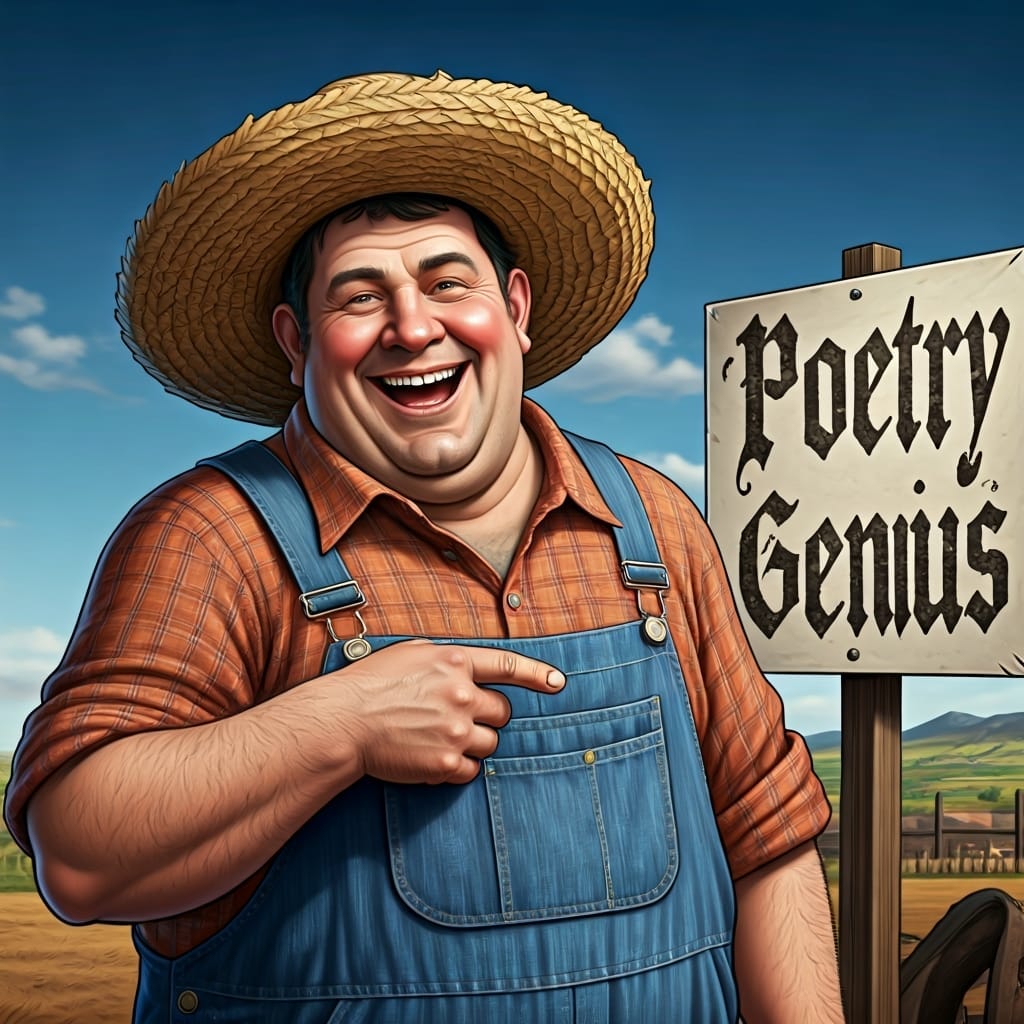Growing Pains: How to Write Coming-of-Age Poetry That Actually Comes of Age
Let's be honest: we've all written terrible coming-of-age poetry.
You know the kind, seventeen lines about how nobody understands you, followed by a metaphor comparing your heart to a wilted flower, capped off with something profound about how this first heartbreak has forever changed your DNA.
The urge to capture those seismic teenage moments is irresistible, and thank goodness for that. But here's the thing: good coming-of-age poetry isn't just about feeling everything intensely, it's about finding fresh ways to make universal experiences feel urgent again.
The transition from adolescence to adulthood is poetry's equivalent of a well-worn hiking trail. Everyone's been here before, but that doesn't mean there aren't new views to discover if you know where to look.
Beyond the Broken Heart Olympics
First love poems are where many poets cut their teeth, and where most accidentally shoot themselves in the foot.
The impulse makes perfect sense—that first real heartbreak feels like discovering fire, like nobody in human history has ever experienced this particular brand of devastation. Spoiler alert: they have. But that doesn't make your experience less valid; it just means you need to work harder to make it surprising.
Take Frank O'Hara's approach in "Having a Coke with You."
He could have written another sonnet about eternal love, but instead he gets specific: "I look / at you and I would rather look at you than all the portraits in the world." The ordinariness of sharing a Coke becomes the container for something enormous. He's not competing in the Broken Heart Olympics—he's finding the exact moment where the everyday becomes transcendent.
The mistake most coming-of-age love poems make is going straight for the big emotions without earning them.
Instead of announcing "My heart shattered into a million pieces," show us the moment you realized they'd been lying about where they were Friday night. Give us the text message that went unanswered, the song that came on the radio at exactly the wrong moment, the way their laugh sounded different when they were talking to someone else.
The Alienation Problem (And Why It's Actually a Gift)
Feeling misunderstood is practically a rite of passage, which is why so many coming-of-age poems sound like they were written by the same tortured teenager.
The challenge isn't avoiding the theme of alienation—it's finding your particular shade of not-belonging.
Look at how Gwendolyn Brooks handles this in "We Real Cool." Those pool players aren't just generic rebels, they're specific in their defiance, specific in their vulnerability. "We real cool. We / Left school." The line breaks make us feel the bravado and the uncertainty at the same time. Brooks doesn't just tell us these kids feel alienated; she lets us hear it in the rhythm of their own voices.
Your alienation isn't the same as everyone else's.
Maybe you felt different because you were the kid who preferred books to parties, or because your family's financial struggles made you hyper-aware of what you couldn't afford, or because your mental health struggles made normal teenage concerns feel impossibly distant. The specific texture of your outsider experience is what makes it poetry-worthy.
Mental Health Without the Melodrama
Writing about depression, anxiety, or other mental health struggles during adolescence requires a particularly delicate balance. These experiences are real, often devastating, and deserve to be captured in verse.
But there's a difference between honoring your struggles and turning them into performance art.
The best mental health poetry doesn't just document symptoms—it finds unexpected metaphors, surprising moments of clarity, or the weird ways trauma intersects with ordinary life. Sylvia Plath, master of psychological complexity, doesn't just say "I was depressed." In "Morning Song," she writes "Love set you going like a fat gold watch."
She finds images that make internal states visible, tangible, strange enough to make us pay attention.
When writing about mental health in your coming-of-age work, resist the urge to make it all darkness or all recovery narrative. Real mental health struggles are messier—there are moments of unexpected humor, days when the depression lifts just enough to notice how good coffee tastes, times when anxiety creates hyperclarity about things that actually matter.
Those contradictions are where the best poems live.
The Friendship Minefield
Teenage friendships are their own special category of intensity, these relationships that feel like they'll last forever and sometimes end over nothing at all. The temptation is to either idealize them ("my best friend was my soulmate") or dramatize their endings ("she betrayed me and I'll never trust again"). Both approaches miss the more interesting truth: adolescent friendships are laboratories for learning how to be human with other humans.
Sharon Olds captures this beautifully in her work, she doesn't shy away from the complexity of relationships, the way love and resentment can coexist, the way growing up sometimes means growing apart.
When writing about formative friendships, look for the moments that surprised you. The time your best friend defended someone you both usually made fun of. The night you realized you'd been performing a version of yourself that you didn't even like. The slow recognition that you were becoming different people.
The Specificity Advantage
Here's what separates memorable coming-of-age poetry from the generic stuff: specificity.
Not just emotional specificity, but sensory, temporal, cultural specificity. What year was it? What song was playing? What did your bedroom smell like? What brand of anxiety medication were you secretly googling?
Robert Frost understood this. "Birches" isn't just about nostalgia for childhood—it's about the specific act of swinging on birch trees, the way ice storms bend them, the exact physical memory of that release. The particular becomes universal, not the other way around.
Your coming-of-age story happened in a specific place, at a specific time, with specific music and specific fears and specific hopes. That McDonald's where you had your first real conversation about death. The particular shade of embarrassment when your mom picked you up from a party.
The exact words your guidance counselor used when she suggested you "might want to consider" community college.
The Wisdom Trap
Perhaps the biggest mistake in coming-of-age poetry is trying to wrap everything up with premature wisdom.
Real adolescence doesn't come with neat conclusions—it's all questions and contradictions and false starts. The best coming-of-age poems capture the uncertainty, not the lessons learned.
Maya Angelou was a master of this. She could write about incredibly difficult experiences without rushing to the moral of the story. She let the experience exist in all its complexity, trusting readers to find their own meanings. When you're revising your coming-of-age work, notice where you're trying too hard to be wise.
Sometimes the most honest thing you can say is "I still don't understand what happened that night, but I know it changed something."
Writing Forward, Not Backward
The most powerful coming-of-age poetry isn't written from the safety of adulthood looking back, it's written from the messy middle of becoming. Even if you're writing about events from years ago, try to get back inside the confusion, the intensity, the way everything felt permanent and temporary at the same time.
This means resisting the urge to explain too much, to provide context that your younger self wouldn't have had, to smooth out the rough edges that made the experience difficult to live through.
The power of coming-of-age poetry lies in its ability to make readers remember what it felt like to be that unsure, that hopeful, that convinced that everything mattered more than it possibly could.
Your teenage years weren't just a rough draft of who you'd become—they were their own complete story, messy and urgent and absolutely worth preserving. The trick is learning to honor that story without trying to fix it, to let it be as complicated and contradictory and surprisingly beautiful as it actually was.
Because here's the secret about good coming-of-age poetry: it doesn't just capture what it was like to grow up.
It helps readers remember what it felt like to be fully, intensely, awkwardly alive.
And that's a gift that never gets old.







